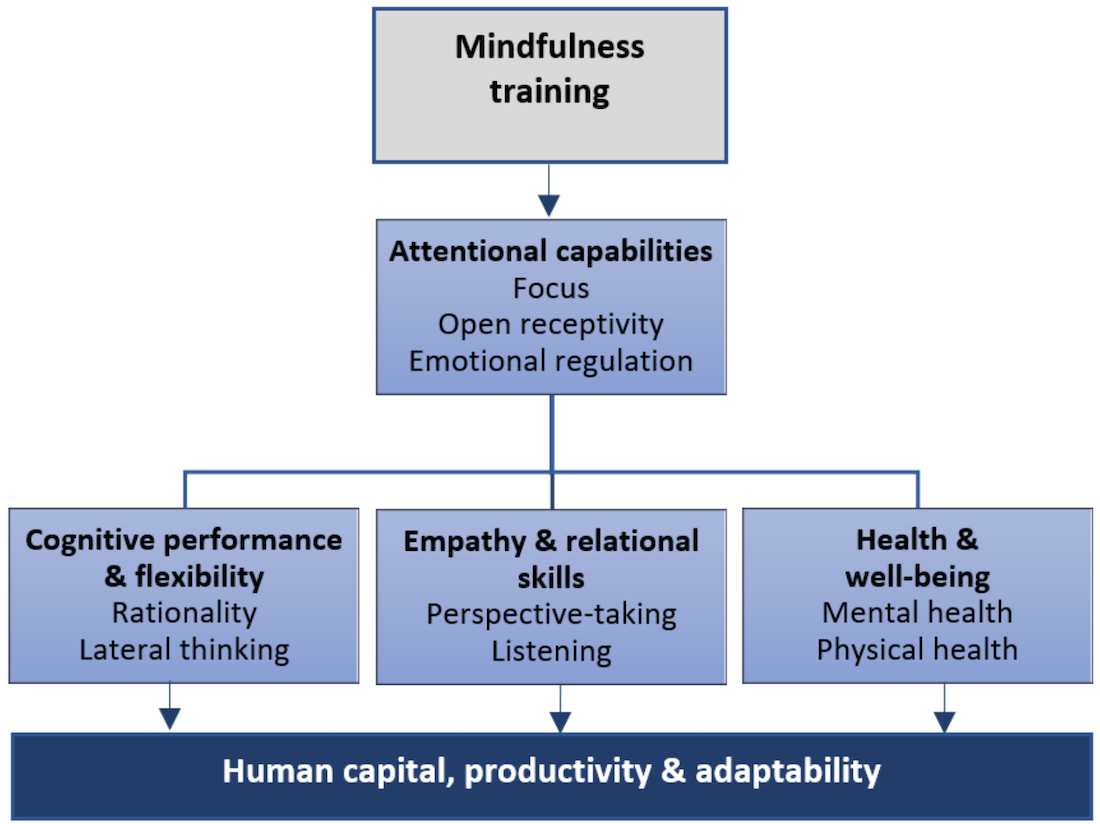Any forward-looking economic strategy must be clearly framed within our current environmental context; indeed, it should take the reality of our environmental situation as a primary consideration. The issue is urgent: even if we achieve a moderate reduction in carbon emissions, global warming is expected to cause a greater incidence of extreme weather events, reduced agricultural productivity and increased risk of conflict and displacement. Human activity is also causing massive loss of species and habitats and acute land, air and water pollution.38
Because economic growth is the key driver of environmental degradation, we need to be open-minded regarding how far we hold to the notion that prosperity must always center, first and foremost, around rising incomes (in turn mapped onto living standards). Such an assumption is reasonable when addressing the needs of those in poverty. But more generally, when we factor in the environmental thresholds we are up against and the well-being of future generations – with the global population expected to exceed 9 billion people by 205039 – it is right to challenge whether this ‘growth paradigm’ serves us well as a universal starting point for an economic strategy.40
Adair Turner, among many other respected economists, has repeatedly urged governments to avoid pursuing economic growth per se. Trying to get growth up by a few tenths of a percentage point, he argues, is ‘pursuing a false god’: both by knowingly exacerbating the environment situation but also because ‘all the evidence shows that beyond the sort of standard of living which Britain has now achieved, extra growth does not automatically translate into human welfare and happiness’.41
Reviewing the extensive literature on incomes and happiness – and the full range of approaches that move beyond GDP as a measure of wellbeing – is beyond the scope of this series of articles.42 But one angle that is relevant for our purposes here revolves around studies in psychology on the plasticity of the motivational system. These suggest that we each have far more choice over the formation of our desires and preferences than economic models would lead us to believe. In other words, the mindsets we adopt – and choose to cultivate – matter. People with materialistic mindsets – those orientated towards extrinsic goals like money and status – typically report lower subjective well-being.43 We consider what this means for homo economicus. For now, we can note that even when our natural inclination is to satisfy as many of our material desires as we can, it is unclear this is the best response to our desires.10
Mindfulness and Consumption: Less Is More?
What can we say about the link between mindfulness training and consumption behavior? To begin with, an increase in the aggregate level of mindfulness across the general public would likely lead to less impulsive consumption – to economic activity that is less tied to consumerism. To understand why, we can note that cultivating mindfulness is thought to afford the practitioner more of a gap between stimuli, such as a new desire popping up, and response, such as making an impulse purchase as a result. This, in turn, is because metacognition helps individuals to become aware of mental states – including desires, expectations, and so on – without getting overly caught up in them. Desires still arise, but by seeing them more clearly for what they are – as mental events – more mindful individuals may find that desires often pass away rather than crystallizing into reactive consumption behavior.44
Supporting this hypothesis, a study by Brown et al (2009) considers individuals’ financial desire discrepancies – the self-reported gap between current and desired states. The authors find that individuals who practice mindfulness typically reported lower financial desire discrepancies, and higher subjective wellbeing, relative to the control group. That is, they were better able to cultivate a sense of having ‘enough’.45
One might also expect shifts in the type of consumption patterns that drive economic activity. Mindfulness cultivates an open, receptive awareness: not only of one’s present moment experience, but also of the consequences of one’s actions. Bringing such awareness to one’s consumption behavior may create the inner space for thoughts such as ‘Can I support local business with this purchase?’ or ‘Can I substitute this product for one that will have a smaller environmental footprint?’. Empirically, there is some evidence that individuals with a higher mindfulness capacity are significantly more motivated to take climate adaptation actions.46
What would all of this imply for aggregate demand? There are reasons to believe that an economy built upon an investment in the capacities of heart and mind acquired through mindfulness training would lead, relative to the counterfactual, to a lower long-run rate of consumption growth (and likewise lower GDP growth). This should be interpreted as good news: individuals would be revealing a preference to consume less (and work fewer hours to take better care of their wellbeing) and this would also benefit the environment.
In fact, to the extent that the world economy has to change course dramatically in order to deliver sustainable prosperity, the path of mindful economic development represents an opportunity for the U.S., the UK – or whichever economy moves first in this space – to lead the rest of the world in showing how a substantially different blueprint for success is possible.
About the Author: This excerpt was edited and reprinted with the permission of our friends at The Mindfulness Initiative. To learn more about their work, please visit www.themindfulnessinitiative.org.
View References
10 See https://lifehacker.com/how-long-it-takes-to-get-back-on-track-after-a-distract-1720708353.
38 See https://www.ippr.org/files/2018-08/1535639099_prosperity-and-justice-ippr-2018.pdf.
39 See https://www.un.org/development/desa/en/news/population/world-population-prospects-2019.html.
40 See for instance Jackson (2016). Given the urgency of the issue, the burden of proof should be shifted: formulators of economic objectives should assume that the current “more is better” model of consumer driven growth does not work until we have compelling evidence that we are living sustainably.
41 See https://beyondgrowth.co.uk/history/. See also, for instance, Easterlin et al (2010).
42 For a review, see, http://www.oecd.org/publications/beyond-gdp-9789264307292-en.htm and http://worldhappiness.report/ed/2018/.
43 See Kasser (2003). 44 See Nixon (2016).
45 See Brown et al (2009). 46 See Wamsler & Brink (2018). Brown and Kasser (2005), meanwhile, find that human wellbeing and ecologically sustainable behaviors go hand in hand, identifying mindfulness as one factor that is significant in driving this relationship.










